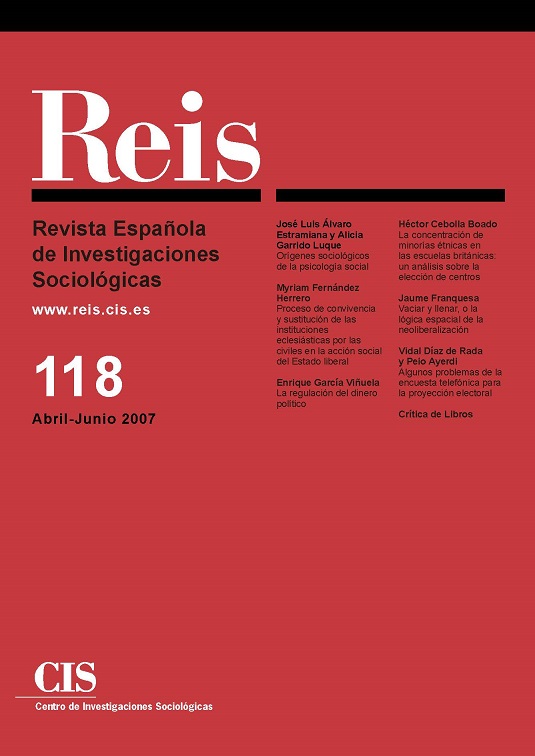The process of coexistence and replacement of church institutions by others of a civil nature in the social action applied by the liberal State
DOI:
https://doi.org/10.5477/cis/reis.118.27Keywords:
Catholic Church, Religious Institutions, Public Sector, Public Policies, Social Policies, Welfare, Secularization, 19th Century, SpainAbstract
This article analyses the process, which emerged from the Age of Enlightenment, of coexistence and the replacement of church institutions by others of a civil nature in the social action applied by the Spanish liberal state throughout the 19th century, which was heavily marked by reforming policy. The interaction of political positions, and also the targets and tools that lay and religious leaders alike defended on this subject, and others connected with each government (the sale of lands owned by the Church, local government reforms, public law and order) are studied from the historical-institutional viewpoint. The Church, up until then the only institution to provide a social welfare model, and the whole of monarchist power, reacted and reshaped their political space into the new legislative and judicial powers, at the same time as the factions of liberalism were shaping territorial, central and peripheral executive power, which was basic to the new State. Eventually, the Church was to live alongside these changes while still maintaining the power to influence, and even assume management of the public model which, under the pressures of industrialization, was to be modernized in a context of (formal) democratization of political representation.
Downloads
Downloads
Published
How to Cite
Issue
Section
License
Copyright (c) 2024 Revista Española de Investigaciones Sociológicas

This work is licensed under a Creative Commons Attribution-ShareAlike 4.0 International License.
Permite Compartir — copiar y redistribuir el material en cualquier medio o formato, Adaptar — remezclar, transformar y construir a partir del material para cualquier propósito, incluso comercialmente.








